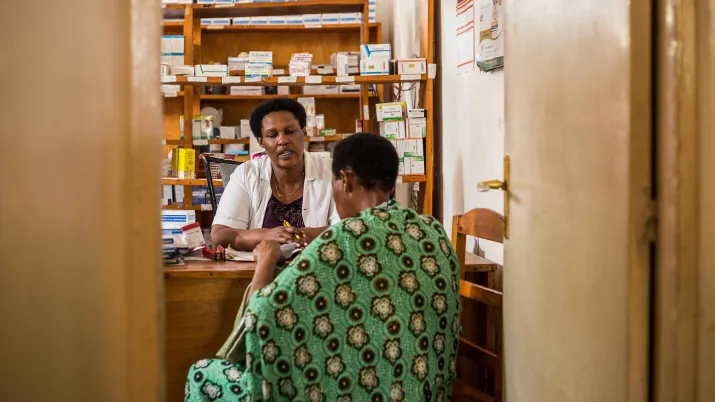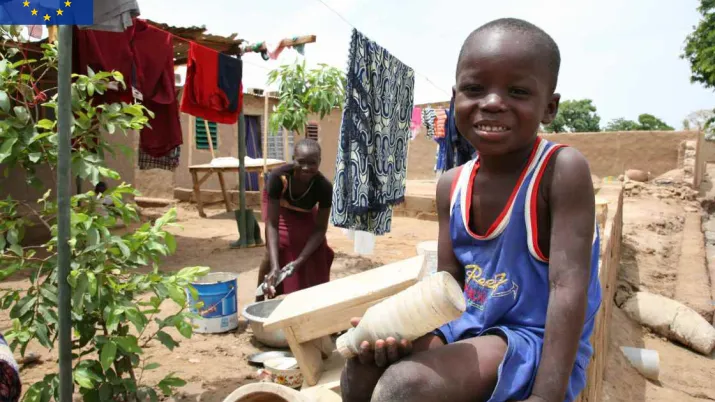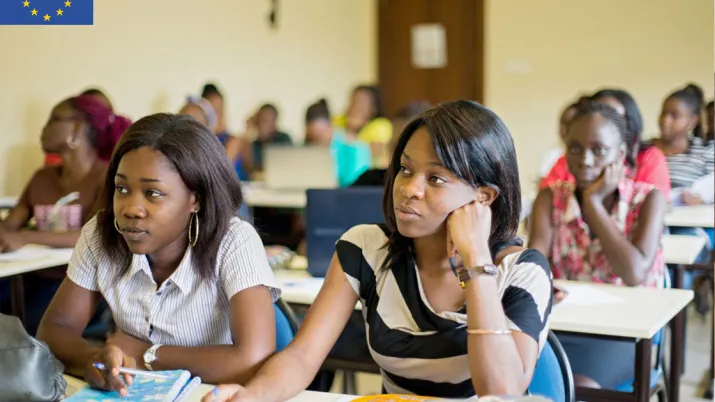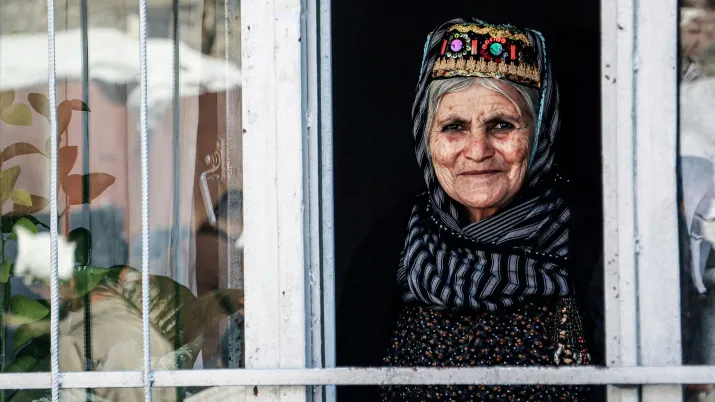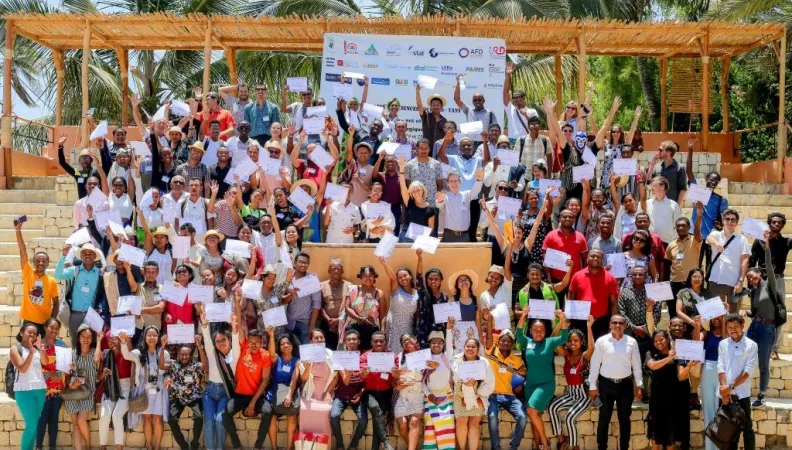 Closing ceremony of the Tany Vao 2022 summer school in Madagascar. PAIRES is a partnership between AFD and the French National Research Institute for Sustainable Development (IRD) that funds a series of impact assessments of development interventions supported by AFD, with a focus on research from the Global South.
Closing ceremony of the Tany Vao 2022 summer school in Madagascar. PAIRES is a partnership between AFD and the French National Research Institute for Sustainable Development (IRD) that funds a series of impact assessments of development interventions supported by AFD, with a focus on research from the Global South. Context
Impact assessments aim to provide information on the effectiveness of projects in producing concrete development results. Specifically, the objective is to estimate whether the effect observed following an intervention is actually attributable to that intervention, and to what extent. To do this, assessments rigorously measure the effects of interventions using quantitative, qualitative, geospatial, or mixed method.
With the aim of strengthening research skills and practices in the Global South in the field of impact evaluation, enriching dialogue with public authorities and stakeholders on development projects, and fostering academic debate on key development issues, a partnership between the French National Research Institute for Sustainable Development (IRD) and AFD was established in 2020 to identify and implement a series of impact evaluations of interventions supported by AFD. The IRD provides the expertise, networks, and operational capacity to carry out these evaluations with partners in the Global South. The partnership was extended in October 2024, which will allow for the selection of new projects for evaluation.
This project takes place in a context when there are growing expectations for evaluations that provide a better understanding and measurement of the results and impacts of development interventions. It contributes to meet these expectations in the same way as other types of evaluation, particularly project evaluations carried out by French cooperation actors.
The IRD is recognized for its scientific excellence, its multidisciplinary approach, its experience in conducting impact evaluation, and its local presence, which enables it to develop close ties with university teams and national statistical institutes in the South with which it can collaborate. This collaboration is also part of a shared research agenda and is covered by an institutional partnership between AFD and the IRD.
See also : Assessing the impact of development projects: AFD and IRD extend their PAIRES partnership, in French
Objectives
The PAIRES program funds impact evaluations of development projects financed by AFD Group, with three objectives:
- To enrich dialogue with public authorities and stakeholders on development projects and their results;
- To strengthen the role, skills, and practice of research in the South in the field of impact evaluation;
- To foster academic debate on key development issues.
Method
Impact evaluations use methods derived from social science research to identify and measure the effects that are strictly attributable to an intervention. Quantitative methods generally involve comparing changes in the situation of the population benefiting from the intervention with those of a population that has not been exposed to the intervention but is comparable to the beneficiary population. Impact evaluation, generally using counterfactuals, therefore makes it possible to isolate the causal effect of an intervention on a variable of interest and to quantify that effect.
Beyond promoting impact evaluations, the PAIRES partnership promotes multidisciplinary evaluations, combining quantitative and qualitative methodologies in order to strengthen the lessons learned about the mechanisms underlying change (or the absence of change).
In addition, the PAIRES program involves researchers from the countries of intervention in all its studies to ensure that the specificities of each context are taken into account and with a view to capacity building.
Results
During its first five years of implementation, PAIRES has mobilized six French research laboratories and eight laboratories in the Southern countries concerned. A total of eight impact evaluations, seven feasibility studies, and four training courses have been funded since the project began.
The ongoing impact evaluations cover 11 countries and various sectors (health, energy, biodiversity, education, gender equality, microfinance, agriculture). They have enabled collaboration with several academic, public, and civil society institutions in France and in countries of the Global South. Other assessments are currently being identified.
In terms of capacity building, PAIRES has organized a summer school and two training courses in geospatial impact evaluation in Madagascar. The program has also funded two joint doctoral contracts between the University of Antananarivo and Paris Saclay University for the BETSAKA project.
Lessons learned from impact assessments
Find below the publications and blog articles related to the impact assessments funded under the PAIRES partnership.
The REDGAS assessment aimed to quantify the health, economic, and social impacts of access to gas cooking for households in Burkina Faso.
Publications :
- REDGAS : Retours sur l’enquête de situation de référence
- Mesures de l’exposition des personnes aux particules fines par méthode gravimétrique dans le cadre de l’étude REDGAS
- Pollution de l’air et consommation de bois au Burkina Faso
- Se baser sur le terrain pour mieux cibler l’intervention : Une étude socioanthropologique en baseline
- Seroprevalence and risk factors for SARS-CoV-2 infection in middle-sized cities of Burkina Faso: A descriptive cross-sectional study
- Reducing Pollution from Cooking Smoke: key lessons from the REDGAS randomized study in Burkina Faso
- Présentation du projet et de ses résultats
- Clean Cooking: Insights from two new AFD and FID Experiments
Do forest management plans contribute to promoting the sustainable use of forest resources in the Congo Basin?
Publications :
- Impact Evaluation Study of Forest Management Systems on the Forest Cover in the Congo Basin
- Do forest-management plans and FSC certification help avoid deforestation in the Congo Basin?
- Focus : Plans d’aménagement forestier et conditions de vie des populations des forêts d’Afrique centrale
- Plans d'aménagement forestier et conditions de vie des populations des forêts d'Afrique centrale : une revue de la littérature
The BETSAKA project (Biodiversity-economic tradeoff and synergy assessments for conservation areas): what are the environmental and socioeconomic impacts of terrestrial protected areas in Madagascar from 2000 to 2024?
Publications :
What has been the impact of the Health Voucher on the use of maternal health services by pregnant women in Cameroon?
Publications :
- Coming soon
What is the impact of a parenting education program on children's cognitive and non-cognitive development?
Publications :
What is the impact of viewing awareness videos on domestic violence on knowledge, attitudes, and reporting of domestic violence?
Publications :
How does education through sport help transform gender attitudes and behaviors among middle school students?
Publications :
Contacts
- Flore Gubert, IRD Scientific Coordinator
- Ingrid Dallmann, AFD Project Manager
- Juliette Maunoury, IRD PAIRES Project Coordinator
Discover other research projects
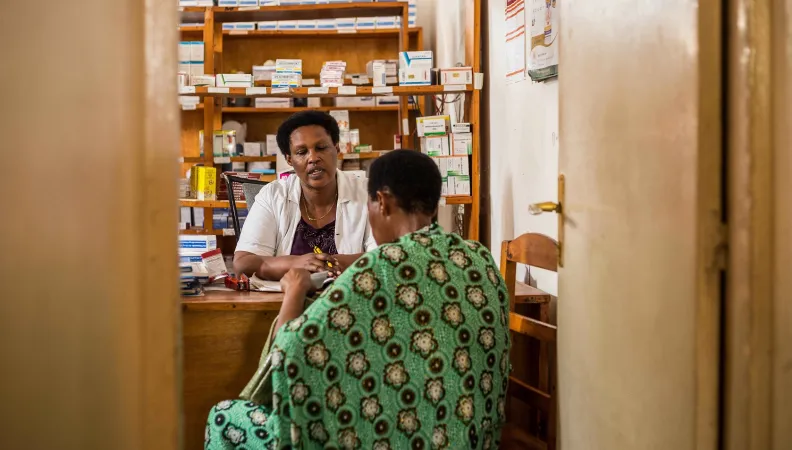 Africa remains a young continent. However, the ongoing demographic transitions are accompanied by an anticipated aging population — and in some countries, this process has already begun. Although a wide variety of situations coexist across the continent, the growing number of older people will require significant adjustments to public policies, including fiscal, health, and social measures.
Africa remains a young continent. However, the ongoing demographic transitions are accompanied by an anticipated aging population — and in some countries, this process has already begun. Although a wide variety of situations coexist across the continent, the growing number of older people will require significant adjustments to public policies, including fiscal, health, and social measures.
Context
In many African countries, older people still represent a very small share of the population (3% in sub-Saharan Africa and 5.6% in North African countries). For a long time, they have been largely overlooked by public policies, which have focused instead on the most urgent needs of economic, social, and health development — primarily targeting children and young adults.
However, the number of older people is increasing — not only in absolute terms but soon also in relative terms, with aging projected to occur more rapidly than in other regions. The challenge now is to design and implement appropriate public policies to support this demographic shift, particularly in the areas of health and social protection.
New forms of coverage and protection are emerging — or becoming essential — such as cash transfers, which complement family-based solidarity systems, free healthcare and services for older adults, the expansion of so-called universal pension and retirement schemes, and more broadly, private support systems on which most older people on the continent must still rely.
Objectives
This research project provides a framework for understanding population aging and related public policies across the African continent, from a comparative perspective. It examines the aging process, its associated challenges, the public policies addressing it, and the institutional frameworks in various countries, focusing on emblematic case studies that reflect diverse situations (South Africa, Cameroon, Cape Verde, Kenya, Morocco, and Senegal). The project also includes targeted analyses based on recent data, highlighting the contributions of demographic research to issues of health and social protection (notably pensions) for older adults.
The project resulted in a valuable overview for policymakers in AFD’s partner countries, contributing to broader reflections on the conditions under which different public policy models may or may not be replicated across the African continent.
Method
The project is based on a comparative analysis of secondary demographic data drawn from existing sources — including research papers, reports, and scientific literature. By presenting the different trajectories of demographic transitions, it offers an overview of aging across the continent, including its timing and context, and explores the associated challenges for both national and local public policies. It highlights regional, national, and subnational variations in aging, in order to identify the areas that are either most advanced in this process or experiencing the fastest pace of change.
Focused case studies on a selection of countries representing different situations provide a systematic critical review along the following lines:
- a socio-demographic and health overview;
- a description of the institutional framework and public policies in place;
- a critical analysis of the social and health-related challenges of the aging process;
- and an exploration of how aging is transforming family structures — particularly regarding intergenerational transfers, migration patterns, and women’s labor participation.
Results
The research project led to the following publications:
- The publication of the research paper “Africa Facing Its Aging Population: What Are the Challenges for Public Policy?” (in French, June 2024);
- The release of “How can healthcare for older people in sub-Saharan Africa be improved?” (April 2024);
- The publication of “Health Statistics on Older Adults in Sub-Saharan Africa: A Literature Review” (in French).
In July 2023, a webinar from the Research Conversations series presented the project’s initial findings (in French only):
Research findings
Africa is expected to face the challenge of an aging population in the coming decades. The first and foremost challenge lies in expanding social protection coverage, which is currently the lowest in the world: only 17% of the population is covered. This low rate is partly due to the predominance of the informal economy, which hinders the development of a contributory social protection system — particularly in rural areas. There is now a pressing need to strengthen public policies aimed at expanding social protection to a broader share of the population, both in rural and urban areas.
However, the evolution of social protection systems — particularly in health and pensions — rests on several key pillars that remain uncertain and have historically been prerequisites for their expansion:
- First, the effective collection and use of tax revenues to finance social protection;
- Second, the promotion of stronger links between pension and health coverage;
- And finally, sustained economic growth driven by a development model — historically industrial and manufacturing-based — that enabled the establishment of such public policies.
Yet in Africa, this economic model, centered on formal employment, has not taken root. Moreover, the impacts of climate change are raising fundamental questions about this development path, making it even more difficult to design and implement aging-related public policies — just as they are becoming increasingly necessary.
READ OUR RESEARCHER'S INTERVIEW
Serge Rabier: ‘Many African Countries Have No Social Protection Programmes For Elderly’
Want to stay updated on AFD’s latest research?
Contact
-
Serge RABIER
Research Officer, Social Demographer


